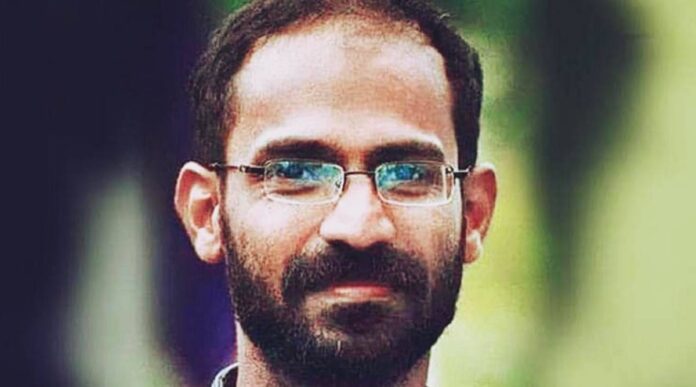Siddique Kappan, a journalist from Kerala who has spent nearly two years in the custody of the Uttar Pradesh police, was granted bail by the Supreme Court. His request for bail was granted on Friday by a Supreme Court panel presided over by Chief Justice UU Lalit. A case against him has been filed by the UP government under the Unlawful Activities Prevention Act (UAPA). According to a Supreme Court order, Kappan must appear before the trial court within three days and be granted bail.
According to the bench, which was also made up of Justice S. Ravindra Bhat, Kappan will be brought to the trial court within three days. He will then be granted bail with the requirement that he remain within Jangpura’s jurisdiction in New Delhi for the first six weeks. He would also be required to record his presence at the local police station every Monday for that length of time, after which he could go to Kerala, where he too would be expected to report to the local police station every Monday.
Kappan was charged with sedition in violation of Sections 124A, 153A, and 295A of the Indian Penal Code, as well as Sections 14 and 17 of the Unlawful Activities (Prevention) Act and Sections 65, 72, and 76 of the Information Technology Act.
On October 5, 2020, Kappan and three other people, including the driver of the vehicle in which they were travelling, were detained in Mathura while en route to Hathras, where a Dalit lady had allegedly been gangraped and murdered. They were detained and charged with sedition under the UAPA. While Kappan said he was travelling to Hathras to report on the incident, the UP Police asserted the group was planning to stir up trouble in the region because of supposed ties to the Popular Front of India (PFI).
The Allahabad High Court granted Mohammad Alam, the car’s driver who was detained with Kappan, bail on Tuesday. The case of this accused appellant (Alam) differs from that of his co-accused, Siddique Kappan, since purportedly incriminating evidence was found in Kappan’s possession. He is a press reporter, and among other things, a laptop and a phone were found in his hands, along with articles and video clips that were incriminating. The court acknowledged that no such incriminating evidence was retrieved from the custody of the current accused appellant (Alam).
Today in court, the CJI confronted the opposing counsel with a number of pointed inquiries, largely in response to the allegations made by the Uttar Pradesh police. The CJI remarked that “statements of co-accused” cannot be used as evidence after determining whether Kappan had “done anything in promotion of the literature” and learning from opposing counsel that the Uttar Pradesh government has such statements.
The CJI further refuted Uttar Pradesh’s assertions that the case was ready for trial soon by pointing out that if it was still trying to locate an approver for the aforementioned fact, the case wasn’t going to trial. Then CJI Lalit stated, “At most, you can claim that this man was in a car travelling, that he was stopped together with three others, that the car contained some material, and that the other three had connections to PFI.
The CJI further contested the police’s assertion that the books found with Kappan were harmful. The Kerala Union of Working Journalists and Kappan’s family have consistently claimed that there were grave violations of Kappan’s human rights during his term in prison. It said Kappan had been “beaten three times and subjected to mental abuse during custody” in December 2020. His lengthy detention has drawn criticism from all across the world and is frequently cited as a sign that press freedom in India is deteriorating.






